Hayley Arceneaux: Cancer survivor joins first all-civilian space mission
- Published
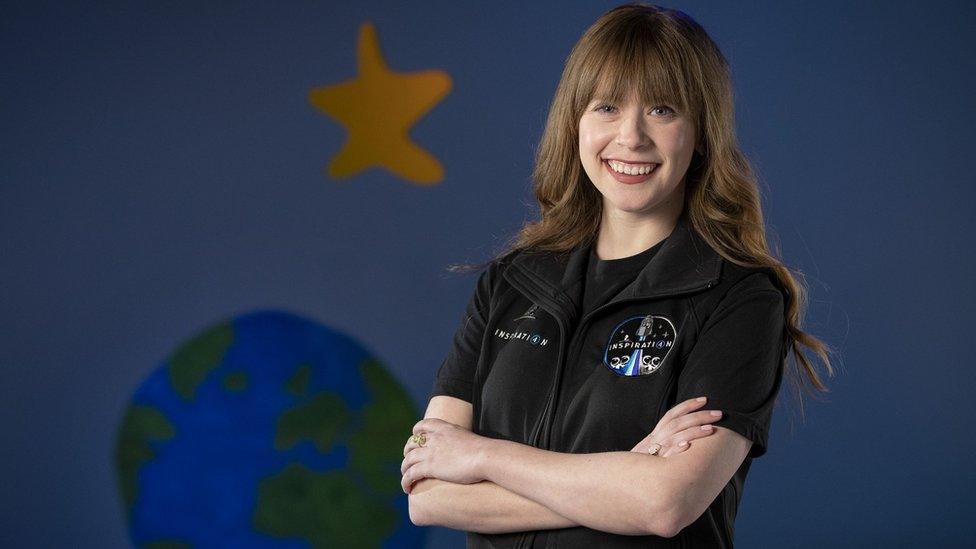
Hayley Arceneaux, a cancer survivor, will achieve a number of firsts when she goes to space this year
The first bone cancer survivor to become an astronaut. The first person with a prosthetic body part to visit space. And the youngest American ever to orbit Earth.
These are the impressive firsts that could soon be attributable to 29-year-old Hayley Arceneaux.
In January, the physician assistant was picked to join the crew of the world's first all-civilian space mission.
Ms Arceneaux was ecstatic but, at first, she had to keep her lips sealed.
"I've held onto the biggest secret of my life for a month and a half. So now I get to share it with the world," she told the BBC.
Her selection for the historic mission was announced on Monday by the St Jude Children's Research Hospital in Memphis, Tennessee, where Ms Arceneaux was once a cancer patient as a child and now works.
Later this year, she will launch from Florida on a Falcon 9 rocket made by SpaceX, the company founded by business mogul Elon Musk.
"I think this mission is going to inspire people in so many ways," Ms Arceneaux said. "It shows them that anything is possible."
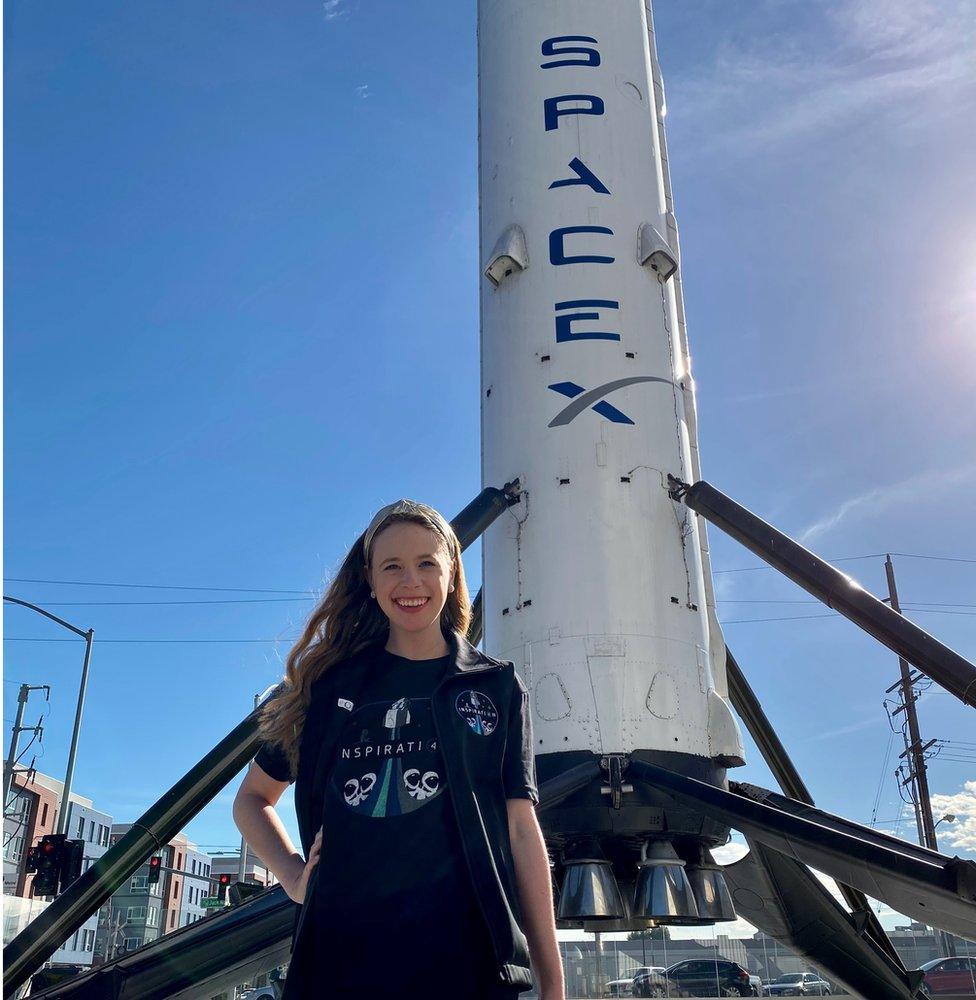
Ms Arceneaux works as a physician's assistant in the hospital where she was a patient

There will be no professional astronauts on board the spacecraft.
Rather, Ms Arceneaux will be joined by two contest winners and flight commander Jared Isaacman, a 38-year-old billionaire who is paying for the entire mission.
The mission is the pet project of Mr Isaacman, who announced on 1 February that he had bought the rocket launch.
Mr Isaacman is aiming to use the flight to raise $200m (£142m) for St Jude, half of which he said he will donate himself.
Of the four available seats on the spacecraft, one was offered to a member of staff at the hospital.
"From the start, we wanted a crew member that represented the mission's spirit of hope," Mr Isaacman said. "I can't think of a better person than Hayley to fulfil that responsibility."
For Ms Arceneaux, the flight will be the realisation of a feat she never thought was possible.
At the age of 10, Ms Arceneaux was a bone cancer patient at St Jude.
As part of her treatment at the hospital, Ms Arceneaux had chemotherapy and surgery to replace some of her leg bones with artificial ones.
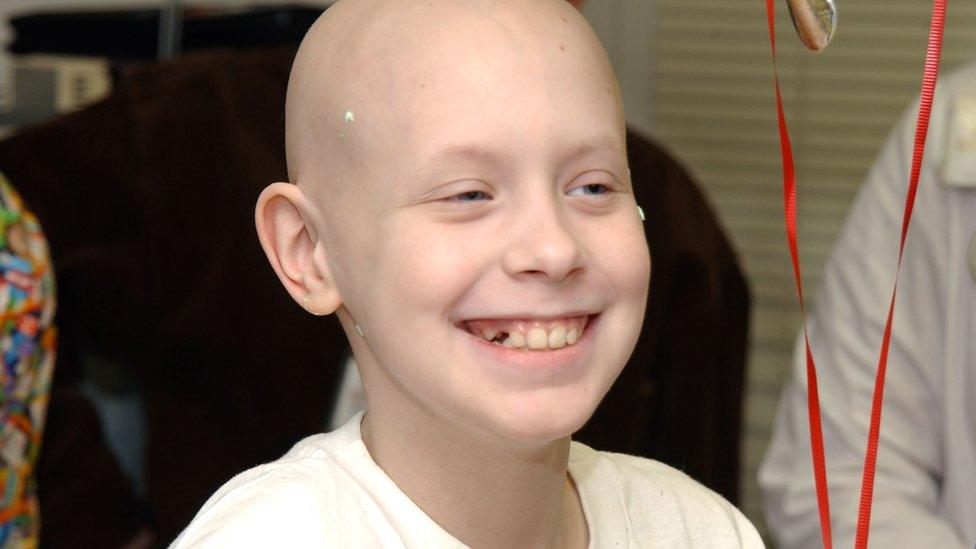
Ms Arceneaux was diagnosed with bone cancer as a child
In a different era, Ms Arceneaux's prosthetic leg bones would have grounded her ambitions for space travel as a Nasa astronaut, because of the agency's strict medical requirements.
But the emergence of private space missions in recent years has enabled more of us to reach for the stars.
"Until this mission, I could have never been an astronaut," Ms Arceneaux said. "This mission is opening space travel to people who are not physically perfect."
Ms Arceneaux was at home in Tennessee when she got the "out of the blue" call on 5 January asking if she would join the mission.
Her response? "Immediately, I said, 'yes, yes please'."
After checking with her family to "make sure they were not adamantly opposed", and her brother and sister-in-law who - as aerospace engineers - "really reassured me how safe space travel is", she agreed to join the crew.
Mr Isaacman is planning to select and reveal the remaining two crew members by March.
One will be the winner of a sweepstake competition, whose proceeds will be donated to St Jude.
The other will go to the winner of a contest which asks entrepreneurs to design an online store using software made by Shift4, Mr Isaacman's payment technology company.
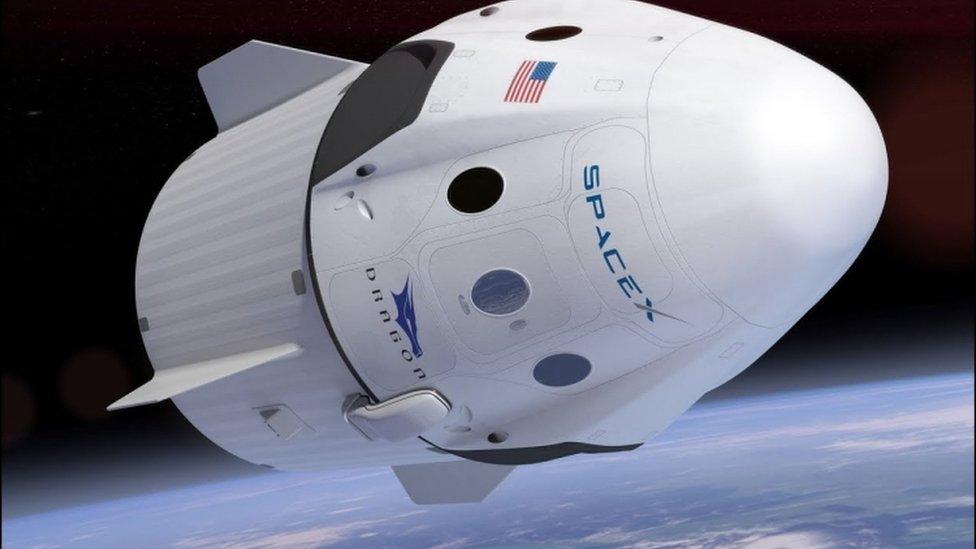
Mr Isaacman will be the commander of the spacecraft
Once selected, the crew will undergo a rigorous, months-long training programme, including mission simulations in zero gravity.
Ms Arceneaux - the flight's medical officer - has already tried on her space suit. It was "so cool" but "heavier than I expected", she said.
She will presumably get used to it by the time the rocket lifts off from Florida's Kennedy Space Center, sometime at the latter end of 2021.
Then, Ms Arceneaux will be wearing the suit for several days as her spacecraft - a SpaceX Dragon capsule - circles the globe.
At the end of the mission, the Dragon will re-enter Earth's atmosphere for a soft-water landing off the east coast of the US.
Are Ms Arceneaux's nerves jangling?
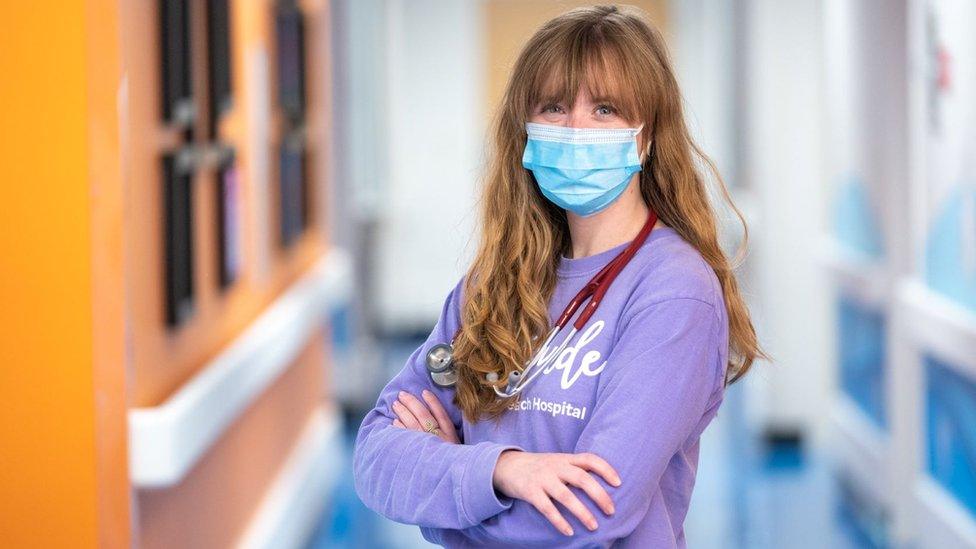
Ms Arceneaux said she hoped her space mission would inspire people with cancer
"I'm really not nervous. I've met the lead engineers for every aspect of this mission. I really trust them."
Compared to what she went through as a child, space travel should be no problem.
"Getting to represent cancer patients and survivors is an incredible honour. It really wasn't that long ago that I was in their shoes," she said.
"When you're going through cancer treatment, you're so focused on the day-to-day. It can be really difficult to look toward the future. I hope that this mission will allow them to imagine their future."

More on space missions:
WATCH: Tim Peake's tips on becoming an astronaut
Related topics
- Published17 November 2020
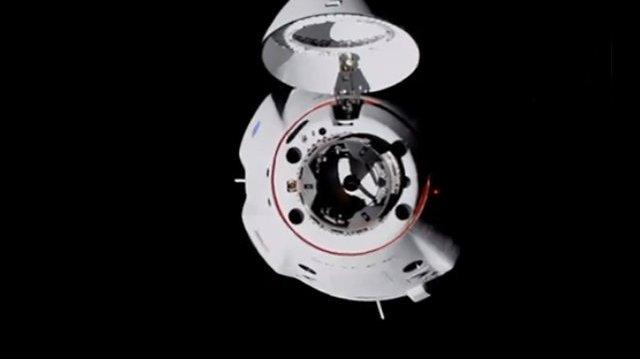
- Published14 November 2020
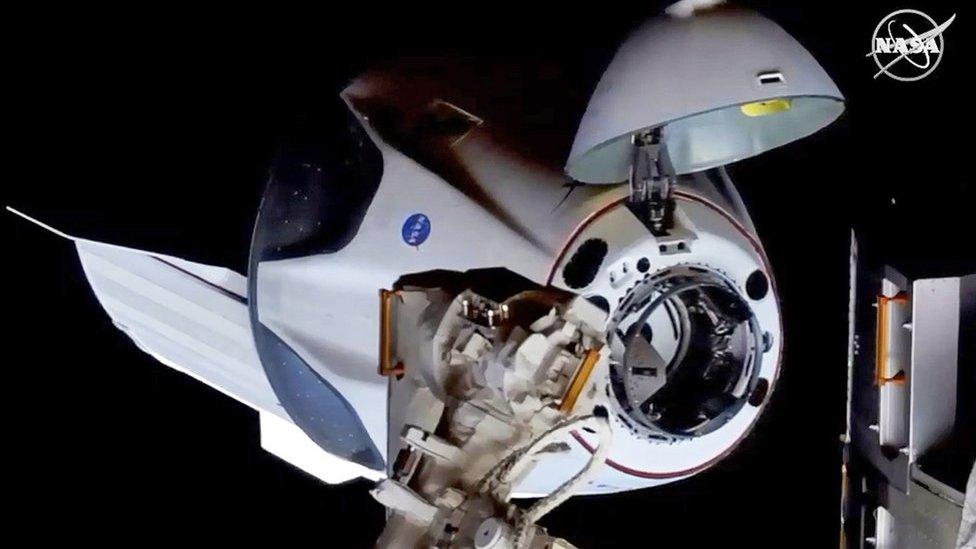
- Published16 February 2021